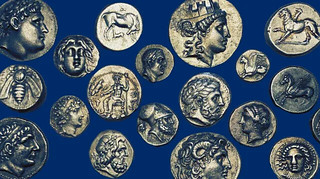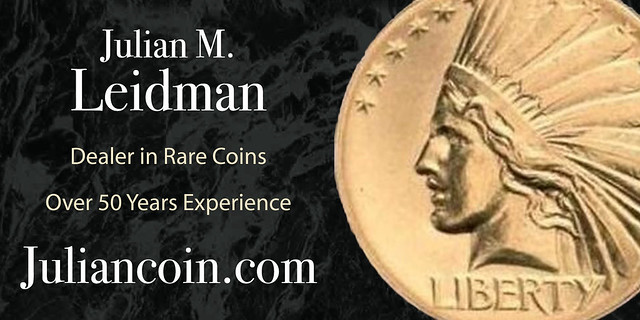
PREV ARTICLE
NEXT ARTICLE
FULL ISSUE
PREV FULL ISSUE
V25 2022 INDEX E-SYLUM ARCHIVE MONEY AS A PHILOSOPHYThis article cites the 2003 book by David M. Schaps on the invention of modern coinage. -Editor
The oldest written references to daily life in ancient Greece can be found in the epics of Homer, namely in the Iliad and the Odyssey. Though these texts are works of mythology, Hellenistic scholars have long looked to them for clues about everyday life in ancient Greece. The epics indicate that the Homeric age, which lasted from 1200 to around 800 B.C., was an age without money. Homer expresses the value of objects not in terms of coins, but cattle. Each of the gold tassels of Athena's aegis, for instance, is described in the Iliad as being worth 100 oxen. The German economic historian Bernard Laum traces the economic significance of cattle back to sacrificial practices. In the subsequent Classical period, trade looked much different. Instead of oxen, the citizens of Greece's city-states made their purchases using coins made from valuable materials and validated with official seals. As currency, coins were far more practical than farm animals, so practical, in fact, that they fueled the creation of entirely new industries and even facilitated the rise (and fall) of several ancient superpowers, notably Athens.
Although the Greeks might not have been the first civilization in history to carry around coins, they were among the first to use those coins as More than means of commerce, Greek coins were social constructs that drastically altered the way people looked at — and interacted with — reality, reshaping the business, politics and even philosophy of ancient Greece. Even though the Greeks did not invent coins, they did invent money as we know it today. This, at least, is the central argument of The Invention of Coinage and the Monetization of Ancient Greece by the classical studies professor David Schaps. Schaps says that for money to be considered money, it must be exclusively acceptable. This was not true for the ancient Near East, where cattle and grain functioned as payment alongside minted coins.
Once coins were introduced in Greek city-states, they quickly became the only viable form of payment. Unlike the so-called Last but not least, ancient Greek coins acquired a semantic significance that primitive money never possessed. The Greeks were keenly aware that money allowed them to express everything in terms of a single, standard unit, redrawing the relationship between objects.
To read the complete article, see:
Wayne Homren, Editor The Numismatic Bibliomania Society is a non-profit organization promoting numismatic literature. See our web site at coinbooks.org. To submit items for publication in The E-Sylum, write to the Editor at this address: whomren@gmail.com To subscribe go to: https://my.binhost.com/lists/listinfo/esylum All Rights Reserved. NBS Home Page Contact the NBS webmaster 
|

